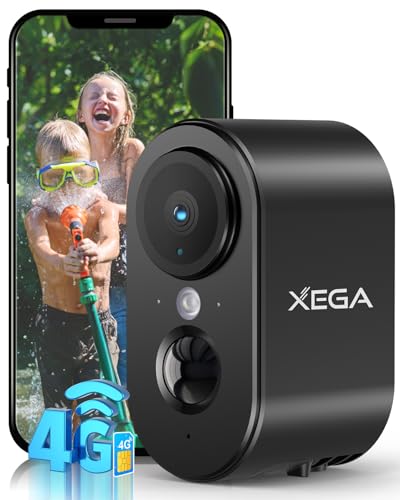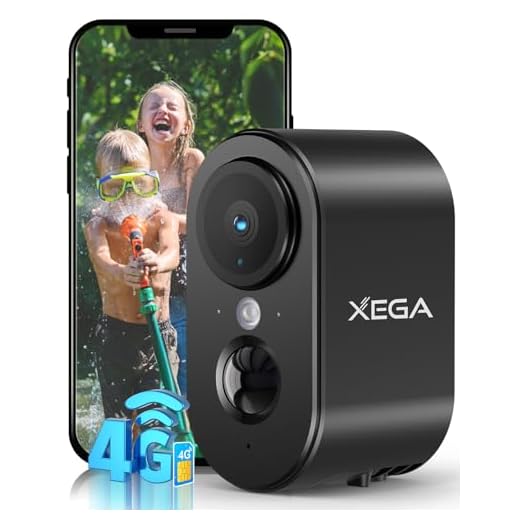


Security cameras have become an essential part of modern security systems, providing homeowners and businesses with peace of mind by monitoring their properties 24/7. However, one common concern that arises when setting up security cameras is the amount of internet speed required to ensure smooth and reliable operation.
Internet speed plays a crucial role in the performance of security cameras, as it determines how quickly and efficiently the cameras can transmit video footage to the cloud or a local storage device. The higher the resolution and frame rate of the cameras, the more bandwidth they will require to stream video footage without lag or buffering.
When determining how much internet speed you need for security cameras, factors such as the number of cameras, resolution, frame rate, and compression settings should be taken into consideration. It is recommended to have a minimum internet speed of 2-4 Mbps per camera for standard definition (SD) cameras and 4-8 Mbps per camera for high definition (HD) cameras.
How Much Internet Speed Do I Need for Security Cameras?
When setting up security cameras in your home or business, it is important to consider the internet speed requirements for optimal performance. The amount of internet speed you need for security cameras depends on several factors, including the number of cameras, the resolution of the cameras, and whether you plan to access the footage remotely.
Generally, for standard definition cameras (SD), you will need a minimum internet speed of 1-2 Mbps per camera for smooth video streaming. If you are using high-definition cameras (HD), the internet speed requirement increases to around 2-4 Mbps per camera. For 4K cameras, you may need even higher internet speeds, typically around 10 Mbps per camera.
If you plan to access the camera footage remotely or want to enable features like motion detection alerts, you will need higher internet speeds to support these functionalities. It is recommended to have a reliable and stable internet connection with sufficient bandwidth to ensure smooth and uninterrupted video streaming from your security cameras.
In conclusion, the internet speed required for security cameras varies depending on the camera resolution, number of cameras, and remote access needs. It is essential to assess these factors and choose an internet plan that can support the demands of your security camera system effectively.
Understanding Internet Speed Requirements
When it comes to security cameras, the internet speed requirements can vary depending on the type of cameras you are using and the number of cameras in your setup. Generally, for standard definition cameras, you will need an internet speed of at least 1 Mbps per camera for smooth streaming and recording. For high definition cameras, the recommended internet speed is around 2-4 Mbps per camera to ensure clear and high-quality footage.
It’s important to consider factors such as the resolution of the cameras, the frame rate, and whether you are using a wired or wireless connection when determining the internet speed requirements for your security camera system. A higher internet speed will not only provide better video quality but also ensure smooth remote access and playback of the footage.
Keep in mind that other devices connected to your network, such as smartphones, laptops, and smart home devices, can also impact the overall internet speed available for your security cameras. To avoid any issues with bandwidth, consider upgrading your internet plan or setting up a dedicated network for your security cameras to ensure optimal performance.
Factors Affecting Internet Speed
When it comes to determining the internet speed required for security cameras, there are several factors that can impact the overall performance:
- Number of Cameras: The more cameras you have connected to your network, the higher the bandwidth requirement will be.
- Resolution of Cameras: Higher resolution cameras will consume more bandwidth compared to lower resolution cameras.
- Frame Rate: Cameras recording at higher frame rates will require more bandwidth to transmit the video feed.
- Compression: The type of compression used by the cameras can affect the amount of data that needs to be transmitted over the network.
- Network Congestion: The overall network congestion and traffic can impact the available bandwidth for the security cameras.
- Quality of Service (QoS): Prioritizing the network traffic for security cameras through QoS settings can help ensure a consistent and reliable connection.
Considering these factors will help you determine the appropriate internet speed needed to support your security camera system effectively.
Types of Security Cameras
When it comes to choosing security cameras for your surveillance needs, there are several types to consider. Here are some common types of security cameras:
1. Dome Cameras: Dome cameras are popular for indoor and outdoor use. They have a dome-shaped design that makes it difficult for intruders to tell which way the camera is facing.
2. Bullet Cameras: Bullet cameras are typically used for outdoor surveillance. They are long and cylindrical in shape, making them easy to install on walls or ceilings.
3. PTZ Cameras: PTZ (Pan-Tilt-Zoom) cameras can pan, tilt, and zoom to provide a wider range of coverage. They are ideal for monitoring large areas.
4. Wireless Cameras: Wireless cameras are easy to install and do not require cables for connection. They are a convenient option for home security.
5. Thermal Cameras: Thermal cameras use heat signatures to detect movement, making them ideal for low-light or no-light environments.
Each type of security camera has its own set of features and benefits, so it’s important to choose the right one based on your specific security needs.
Recommended Internet Speed for Different Cameras
When it comes to choosing the right internet speed for your security cameras, it’s important to consider the type of cameras you have and the resolution at which they operate. Here are some general guidelines for recommended internet speeds based on the type of camera:
Indoor Cameras
| Camera Type | Recommended Internet Speed |
|---|---|
| Standard Definition (SD) | 1-2 Mbps |
| High Definition (HD) | 3-5 Mbps |
Outdoor Cameras
| Camera Type | Recommended Internet Speed |
|---|---|
| Standard Definition (SD) | 2-4 Mbps |
| High Definition (HD) | 4-8 Mbps |
Keep in mind that these are general recommendations and actual internet speed requirements may vary depending on factors such as the number of cameras, video quality settings, and other devices connected to the same network.
Importance of Stable Internet Connection
Having a stable internet connection is crucial for the optimal performance of security cameras. A reliable internet connection ensures that the cameras can transmit live footage and alerts without interruptions. If the internet connection is unstable, it can lead to delays in receiving notifications or accessing the camera feed, which can compromise the security of your property.
Additionally, a stable internet connection is essential for remote monitoring and playback of recorded footage. With a strong connection, you can access your security camera footage from anywhere, at any time, providing you with peace of mind and the ability to keep an eye on your property even when you are away.
| Benefits of a stable internet connection for security cameras: |
| 1. Real-time monitoring |
| 2. Prompt alerts and notifications |
| 3. Remote access to camera feed |
| 4. Seamless playback of recorded footage |
Choosing the Right Internet Plan for Security Cameras
When setting up security cameras, it’s crucial to choose the right internet plan to ensure smooth and reliable video streaming. The internet speed you need will depend on the number of cameras you have, the resolution of the footage, and whether you want to access the video remotely.
Factors to consider:
- Number of Cameras: The more cameras you have, the higher the internet speed you will need to support simultaneous video feeds.
- Resolution: Higher resolution cameras require more bandwidth. If you have 4K cameras, you’ll need a faster internet connection compared to 1080p cameras.
- Remote Access: If you want to view your camera footage remotely, you’ll need a faster upload speed to ensure smooth streaming without buffering.
It’s recommended to have at least 2-4 Mbps upload speed per camera for smooth video streaming. If you have multiple cameras or high-resolution footage, consider opting for a plan with higher upload speeds to avoid lag or delays in video playback.
Testing and Monitoring Internet Speed
When determining the internet speed needed for security cameras, it is essential to regularly test and monitor your internet connection to ensure optimal performance. Here are some tips for testing and monitoring your internet speed:
1. Use Online Speed Test Tools
There are various online tools available that allow you to test your internet speed quickly and easily. Websites like Speedtest.net and Fast.com provide accurate results and can help you determine if your current internet speed is sufficient for your security cameras.
2. Monitor Network Performance
Monitoring your network performance using tools like PingPlotter or Wireshark can help you identify any bottlenecks or issues that may be affecting your internet speed. By keeping an eye on your network performance, you can proactively address any issues and ensure smooth operation of your security cameras.






